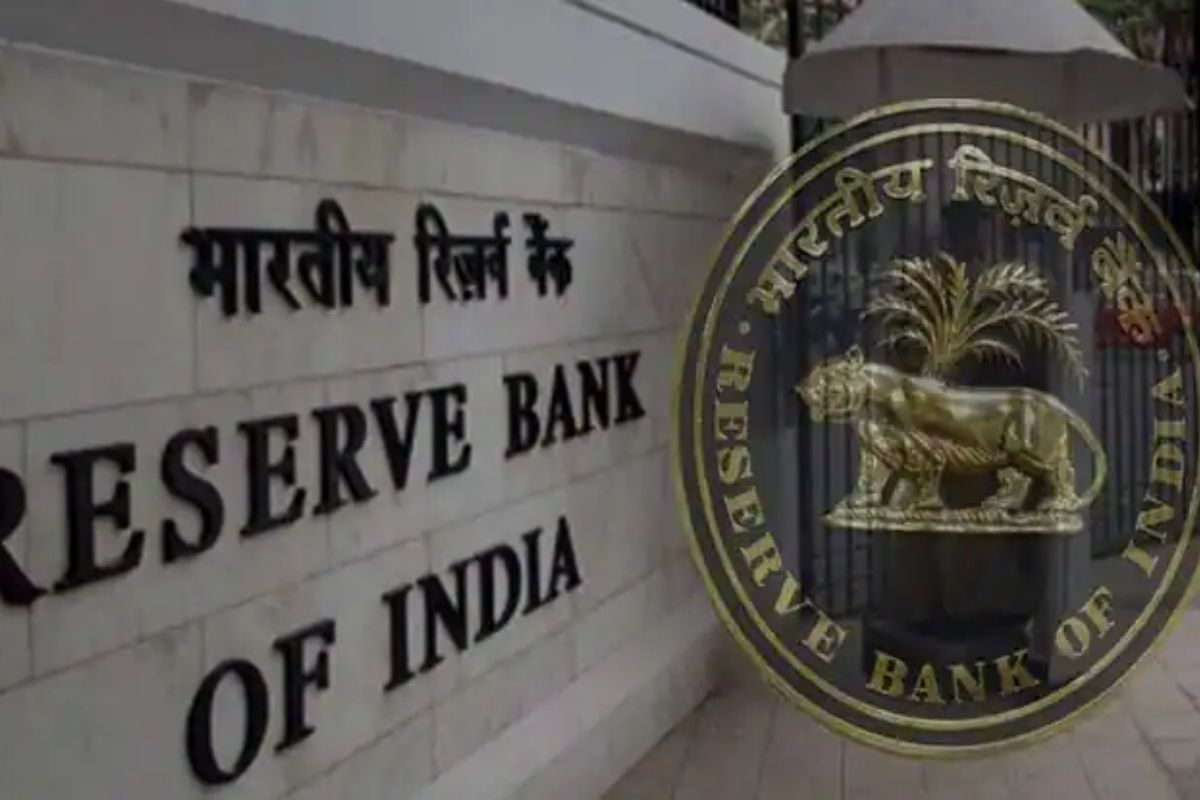After SEBI now the central bank RBI is investigating the Adani matter and asked the banks for details of exposure to the Adani group.

After SEBI now, the central bank RBI is investigating the Adani matter and asked the banks for details of exposure to the Adani group.
The Reserve Bank of India (RBI) has asked banks to share details of the loans they have sanctioned to the Adani Group of companies, their outstanding exposure, and the security structure in light of the Adani Group companies’ stocks and bonds taking a beating over the past few days and Adani Enterprises withdrawing its fully subscribed 20,000 crores follow-on public offer.
Adani has been facing financial ups and downs in the past few days. After all the ruckus and chaos over everywhere, the regulatory bodies are taking charge now. First, SEBI and now the central bank of India is looking at the matter.
Following negative findings by Hindenburg Research involving accounting methods, related-party transactions, and share ownership by a small number of Foreign Investment Firms, securities (shares and bonds) of Adani Group companies are under fire.
They emphasized that the group’s existing businesses have the cash flow to repay bank loans. Banks may reconsider the fines if the company takes on new projects and the promoter’s equity parts fall through.
Bankers emphasized that asset hypothecation or mortgages are prohibited while providing funding to Adani Group enterprises by Indian banks. Foreign banks have used the commitment of volatile shares to fund acquisitions by group companies.
The company may need to carefully review the pricing and funding options for refinancing international bonds that will be redeemable, they said.

A banker warned that the group exposure limits set by the RBI would make it difficult for Indian banks to refinance foreign bonds.
In media publications, there has been concern expressed on the vulnerabilities of Indian banks to a commercial conglomerate. The RBI, as the industry’s regulator and supervisor, closely monitors the banking sector and specific institutions to ensure financial stability.
The RBI manages a Central Repository of Information on Large Credits (CRILC) database system where the banks report their exposure of at least 15 crore rupees, which is utilized for monitoring, according to the central bank.
The group’s exposure to the Indian banking system and the percentage of their total debt has decreased over the last two to three years, according to Swaminathan J, Managing Director (corporate banking & subsidiaries), SBI, who made this statement.
Their debt to EBITDA (earnings before interest, taxes, depreciation, and amortization) ratio has improved during this time, which lets the business comfortably service its debts.
Less than 40% of the overall group debt is attributable to Indian banks. Less than 10% of the overall group debt is attributable to private banks.
As bank debt represents less than 40% of the entire group borrowing, the CLSA research calculates that the banking exposure to the Adani Group is 0.55 % of system loans.

Banks’ Exposure to Adani Group
The largest lender in the country, SBI, reported having a total exposure to the Adani Group of 0.88 percent of the book value, or over Rs 27,000 crore. Dinesh Khara, the chairman of SBI, stated that the bank does not estimate difficulties with the troubled ports-to-mining firm being able to pay its Debt Obligations. He further emphasized that SBI has not granted the group Loans secured by shares.
Although the State Bank of India (SBI) has not yet Publicly Disclosed its exposure, sources show that it may exceed Rs 21,000 crore. The 7,000 crores in total exposure that Punjab National Bank (PNB) has to the Adani Group is supported by cash flows, according to PNB, and there are no concerns about repayments.
According to the bank’s managing director and CEO, A K Goel, the lender has a fund-based exposure to the group of companies of Rs 6,300 crore and a non-fund exposure of Rs 700 crore.
There is a 4,000-crore rupee exposure for the Bank of Baroda. Other banks still have not said how exposed they are. Debt service won’t be a problem because SBI’s exposure to the Adani Group is far below the Large Exposure Framework (LEF) of the RBI and is safe by Cash-generating Assets with suitable TRA (trust and retention account)/Escrow mechanisms in place.
According to Khara, lending to Adani Group projects is contingent upon having real property and enough cash flow. She stated that the company has a stellar repayment history. Additionally, he stated that no request for a refinance from the Adani group had been made.
Given the current circumstances, was the group modifying its Diligence Procedures concerning the Adani Group? Khara responded to this question that the lender always demands equity be raised before providing funds. The sum is not released unless the equity is apparent. We are not expecting any equity. Each of these concepts will now be assessed based on its merit. The decision is made by the credit committees, he added.

Additionally, the Bank of Baroda stated that it has decreased its exposure to the troubled Adani Group firms over the past two years and does not have any worries regarding the conglomerate’s asset quality.
Sanjiv Chadha, the managing director and chief executive of the bank, told journalists that the bank’s overall exposure to the entities of the ports-to-media conglomerate is one-fourth of the single group exposures allowed under the Large Exposures Framework (LEF), but he would not provide a figure.
In response to a specific query on exposures to the Adani Group, the MD and CEO of the bank noted that there is “absolutely no worry” regarding asset quality and that the group has not requested a refinance.
Since the release of the Hindenburg Report, which stated that the Adani Group had engaged in Fraudulent Activities and share price manipulation, the going has been difficult for the company. A day after the issue narrowly passed, the Conglomerate was compelled to cancel a Rs 20,000 crore share sale due to the ongoing sharp decrease in share prices.
The price of Adani Group firms’ shares remained under pressure. Adani Enterprises experienced the largest decline, with shares in Adani Transmission, Adani Green Energy, and Adani Total all falling by 10%, Adani Ports by 6.13%, Adani Power by 5%, and Adani Wilmar by 5% each.
Ambuja Cements increased by 5.33 %, and ACC increased by 0.05 %. As a result, since the release of the Hindenburg report over a week ago, the market capitalization of Adani companies has decreased by $100 billion (or roughly Rs 820,000 crore).
The combined debt of the Adani group exceeds Rs 2 lakh crore. Credit Suisse Group AG stated that Citigroup Inc.’s wealth unit has ceased accepting bonds issued by companies in the Adani Group as collateral for margin loans.
According to the National Stock Exchange (NSE), a short-term supplementary surveillance mechanism has been put in place for Adani Enterprises Ltd, Adani Ports and Special Economic Zone Ltd, and Ambuja Cements (ASM). This suggests that these businesses will have higher trading margins, which will require investors to make larger initial investments.
The ASM category’s purpose is to caution and prod investors to use extreme caution while transacting in the stocks listed in the category. The NSE move came after falls of 26.50% and 6.13% in Adani Enterprises and Adani Ports, respectively.
Edited by Prakriti Arora



